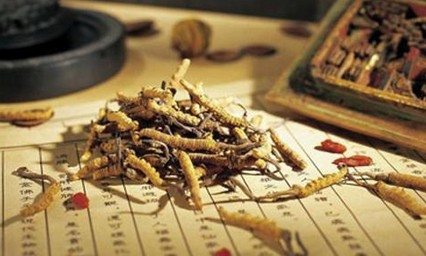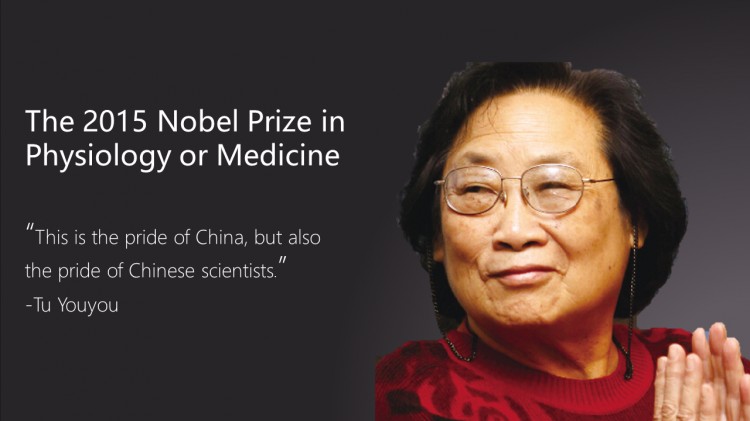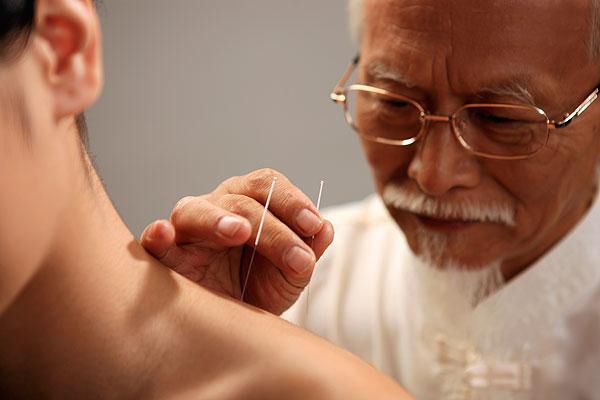By Tom McGregor, CNTV Panview commentator and editor

Traditional Chinese Medicine (TCM) is world famous, but a lack of regulatory oversight prevents TCM practitioners from winning respect from the international medical community, which favors Western-based practices.
TCM holds a rich 2,000 years history and a national treasure of China with its unique treatments that include the use of herbal medicines, acupuncture, massage and diets.
Yet, critics assert TCM treatments have not undergone extensive clinical tests, while relying too much on animal testing and extracting medicinal ingredients from endangered species.
Accordingly, China’s National People’s Congress (NPC) Standing Committee, passed a law on TCM on Sunday, which goes into effect July 1, 2017.
County-level governments and above are required to set up TCM institutes at publicly-funded hospitals, maternity wards and pediatric clinics. All practitioners must pass qualifying exams and Beijing would expand research and development (R&D) centers for TCM.
Going abroad
The NPC is encouraging TCM doctors and researchers in China to collaborate with practitioners from around the world to place TCM on a more equal footing with Western medicine.”
“The new law on traditional Chinese medicine will improve global TCM influence and give a boost to China’s soft power,” Huang Wei, deputy director of NPC Standing Committee for legislative affairs, told ECNS (English China News Service).
Plans are underway to increase international exchanges. The World Health Organization (WHO) has 103 members states that have already approved acupuncture and moxibustion as proper treatment methods.
The Chinese government will support R&D to protect TCM intellectual property. R&D centers will use innovative technology and develop programs to handle an emergency health crises, disease prevention and control.
As of the end of 2014, China had over 3,700 TCM hospitals nationwide, which had generated RMB730 billion ($US105bn.) in revenues.
Fighting TB
TCM has proven effective to combat some deadly diseases, including tuberculosis, which has infected one-third of the world’s population, killing 1.8 million people last year, according to the Centers for Disease Control and Prevention.
Artemisinin, an ancient remedy, became known by the world when Chinese scientist Tu Youyou won the 2015 Nobel Prize in medicine for her discoveries concerning the treatment of it against Malaria.

An NDTV (New Delhi TV) report says latest research has found that artemisinin can also reduce treatment time for TB patients. Mycrobacterium tuberculosis (Mtb) is a TB-causing bacteria that needs oxygen to spread throughout the body. Artemisinin causes Mtb not to go dormant and hence antibiotics can combat it.
“When TB bacteria are dormant, they become highly-tolerant to antibiotics,” NDTV quotes Robert Abramovich, an assistant professor at Michigan State University, as saying. “Blocking dormancy makes the TB bacteria more sensitive to these drugs and could shorten treatment times.”
Abramovich explains that Artemisinin attacks the molecule - heme that is found in an Mtb sensor. Results of the testing were published in the journal, Nature Chemical Biology.
China-Pakistan cures
Chinese President Xi Jinping’s ‘Belt & Road’ (New Silk Road) initiative will play a pivotal role to promote TCM worldwide. Beijing and Islamabad will construct the China-Pakistan economic corridor (CPEC).
CPEC, to be located around the China-Pakistan border, will serve as a hub for constructing power plants, hi-tech zones, factories and logistics centers to transport goods between the Middle East and China.
CPEC will also welcome hospitals and medical science R&D centers, where medical professionals can investigate new cures for cancer and other life-threatening ailments.
The two countries have agreed to set up a TCM training and research facility in Islamabad, as reported by Dawn news.
A Chinese delegation, led by Vice Governor Sichuan Province Yang Xingping toured Pakistan’s Ministry of National Health Services on Thursday.
Sichuan is home to a large manufacturing base of TCM medicines, 1,800 hospitals, 78,000 clinics and 5,000 species of herbs.
Ancient treatment in contemporary times
TCM may seem out-dated to a number of Western doctors, but Beijing is modernizing TCM to keep Chinese medicine viable in modern society.

Some Chinese medicine treatments, such as acupuncture and an assortment of medicines, have proven effective to cure ailments, but more clinical testing is needed to address doubters’ concerns.
Building more TCM R&D centers would allow practitioners to develop new medicines and treatments that will benefit the world. Chinese medicine is ancient, but it deserves greater recognition in today’s world.
( The opinions expressed here do not necessarily reflect the opinions of Panview or CCTV.com. )

Panview offers a new window of understanding the world as well as China through the views, opinions, and analysis of experts. We also welcome outside submissions, so feel free to send in your own editorials to "globalopinion@vip.cntv.cn" for consideration.















